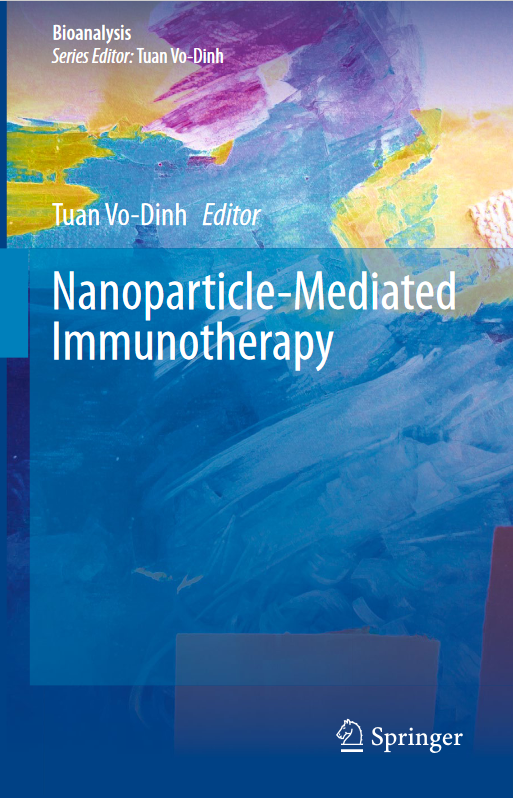Newly released
This book is new and will be uploaded as soon as it becomes available to us and if we secure the necessary publishing rights.

Nanoparticle-Mediated Immunotherapy Book PDF
(0)
Author:
Tuan Vo-DinhNumber Of Reads:
66
Language:
English
Category:
TechnologySection:
Pages:
269
Quality:
excellent
Views:
899
Quate
Review
Save
Share
Book Description
This book is intended to serve as an authoritative reference source for a broad audience involved in the research, teaching, learning, and practice of nanotechnology in immunotherapy. The combination of nanotechnology and immunotherapy is recognized as a promising treatment modality. In particular, the use of nanoparticles in immunotherapy has attracted increased attention for their unique efficacy and specificity in cancer treatment. A wide variety of nanoparticles, such as polymeric and liposomal nanosystems, carbon nanotubes, and gold nanoparticles have provided important nanoplatforms for immunotherapeutic approaches. They have been shown to improve delivery and efficacy of immunotherapeutic agents such as vaccines or adjuvants.
Nanoparticle-mediated thermal therapy has demonstrated the effectiveness for precise tumor cell ablation, radio-sensitization of hypoxic regions, enhancement of drug delivery, activation of thermosensitive agents, and enhancement of the immune system. Plasmonic nanoparticles are a special type of metallic nanoparticles that has received great interest due to their enhanced optical and electromagnetic properties and their superior capacity to convert photon energy into heat for selective photothermal therapy at the nanoscale level. Nanoparticle sizes can also be controlled such that they accumulate preferentially in tumors due to the enhanced permeability and retention effect of tumor vasculature. Various nanosystems such as gold nanoparticles have also been shown to stimulate the immune system.
Immunotherapies could thus synergistically benefit from the combination with targeted nanoparticle-mediated photothermal therapies, especially when hyperthermia around immune-checkpoint inhibitors in the tumor bed is combined with precise thermal ablation of cancer cells. Of great importance is the possibility that such an approach can induce long-term immunological memory that can provide protection against tumor recurrence long after treatment of the initial tumors, like an ‘anticancer vaccine’. Nanoparticle-mediated immunotherapy could lead to an entirely new treatment paradigm that challenges traditional surgical resection approaches for many cancers and metastases.
Tuan Vo-Dinh
Tuan Vo-Dinh (Nha Trang, 11 April 1948) is R. Eugene and Susie E. Goodson Professor of Biomedical Engineering at the Duke University Pratt School of Engineering and professor of Chemistry and director of the Fitzpatrick Institute for Photonics at Duke. Born in Nha Trang, Vietnam, he earned his doctorate in biophysical chemistry at the Swiss Federal Institute of Technology in Zurich in 1975 and emigrated to the United States in 1975.
He researched at Oak Ridge National Laboratory in Tennessee as director of Center for Advanced Biomedical Photonics, and was professor at the University of California and the University of Tennessee, (Knoxville), before coming to Duke in March 2006.
Book Currently Unavailable
This book is currently unavailable for publication. We obtained it under a Creative Commons license, but the author or publisher has not granted permission to publish it.
Rate Now
5 Stars
4 Stars
3 Stars
2 Stars
1 Stars
Nanoparticle-Mediated Immunotherapy Quotes
Top Rated
Latest
Quate
Be the first to leave a quote and earn 10 points
instead of 3
Comments
Be the first to leave a comment and earn 5 points
instead of 3